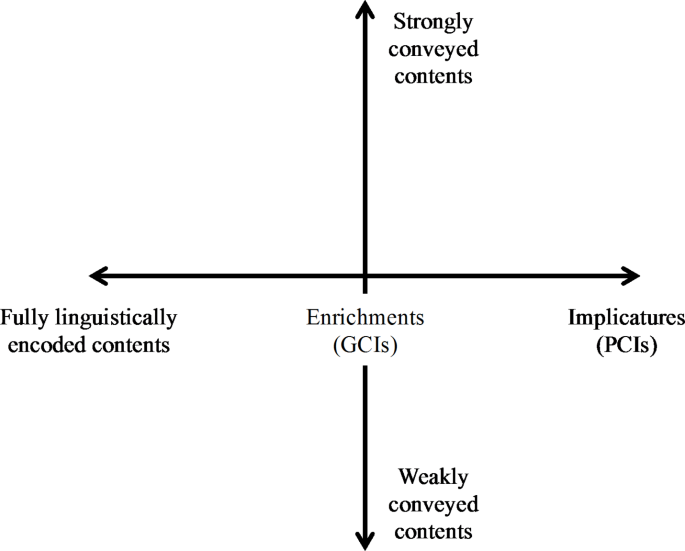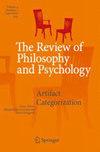超越内隐/外显二分法:似是而非的语用学
IF 1.8
Q2 PSYCHOLOGY, MULTIDISCIPLINARY
引用次数: 0
摘要
在日常对话中,信息的传递往往是间接的、含蓄的。为什么我们的沟通效率如此低下?发言者如何选择表达信息(调节信心,使用不太明确的公式)已经提出影响他们对其内容的承诺程度。这种承诺可以通过问责制来评估——演讲者是否对他们所传达的内容负责?——以及推诿——说话者能合理地否认他们有意传达这个信息吗?我们调查了两个可能影响对隐含传达信息承诺的因素。在一项预先注册的在线研究中,我们测试了这样一个假设,即意义强度的程度(强烈或微弱的沟通)和说话者使用的意义水平(充实或会话含义)调节了问责制和合理的否认。我们的研究结果表明,意义强度和意义水平都会影响说话人的责任和合理的否认。参与者认为丰富内容比会话含义更难否认,强烈暗示的内容比弱暗示的内容更难否认。此外,参与者认为讲话者对通过丰富表达的内容比通过含意表达的内容更负责。这些结果证实了先前发现的意义水平之间的差异(丰富性与含意性)。他们还强调了意义强度在交际中作为说话人承诺的线索的作用,这一作用在很大程度上没有得到充分的研究。本文章由计算机程序翻译,如有差异,请以英文原文为准。

Beyond the Implicit/Explicit Dichotomy: The Pragmatics of Plausible Deniability
Abstract In everyday conversation, messages are often communicated indirectly, implicitly. Why do we seem to communicate so inefficiently? How speakers choose to express a message (modulating confidence, using less explicit formulations) has been proposed to impact how committed they will appear to be to its content. This commitment can be assessed in terms of accountability – is the speaker held accountable for what they communicated? – and deniability – can the speaker plausibly deny they intended to communicate it? We investigated two factors that may influence commitment to implicitly conveyed messages. In a preregistered online study, we tested the hypothesis that the degree of meaning strength (strongly or weakly communicated) and the level of meaning used by the speaker (an enrichment or a conversational implicature) modulate accountability and plausible deniability. Our results show that both meaning strength and level of meaning influence speaker accountability and plausible deniability. Participants perceived enrichments to be harder to deny than conversational implicatures, and strongly implied content as more difficult to deny than weakly implied content. Furthermore, participants held the speaker more accountable to content conveyed via an enrichment than to content conveyed via an implicature. These results corroborate previously found differences between levels of meaning (enrichment vs. implicature). They also highlight the largely understudied role of meaning strength as a cue to speaker commitment in communication.
求助全文
通过发布文献求助,成功后即可免费获取论文全文。
去求助
来源期刊

Review of Philosophy and Psychology
PSYCHOLOGY, MULTIDISCIPLINARY-
CiteScore
4.70
自引率
5.00%
发文量
60
期刊介绍:
The Review of Philosophy and Psychology is a peer-reviewed journal focusing on philosophical and foundational issues in cognitive science.
The aim of the journal is to provide a forum for discussion on topics of mutual interest to philosophers and psychologists and to foster interdisciplinary research at the crossroads of philosophy and the sciences of the mind, including the neural, behavioural and social sciences.
The journal publishes theoretical works grounded in empirical research as well as empirical articles on issues of philosophical relevance. It includes thematic issues featuring invited contributions from leading authors together with articles answering a call for papers.
The Review of Philosophy and Psychology is published quarterly and is hosted at the Jean Nicod Institute, a research centre of the French Centre National de la Recherche Scientifique. It was formerly published as the "European Review of Philosophy" by CSLI Publications, Stanford.
 求助内容:
求助内容: 应助结果提醒方式:
应助结果提醒方式:


